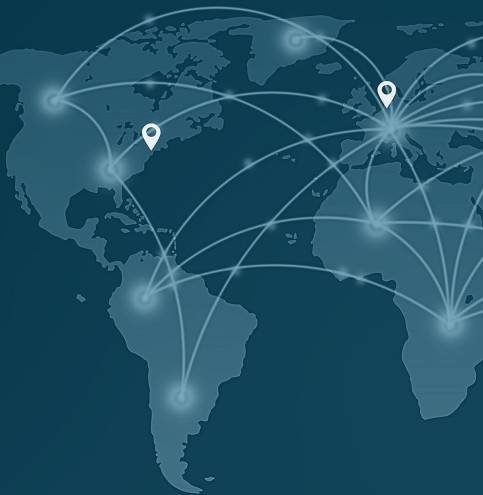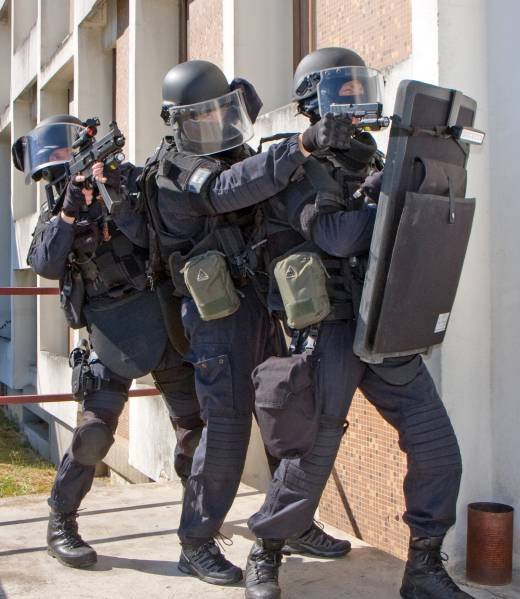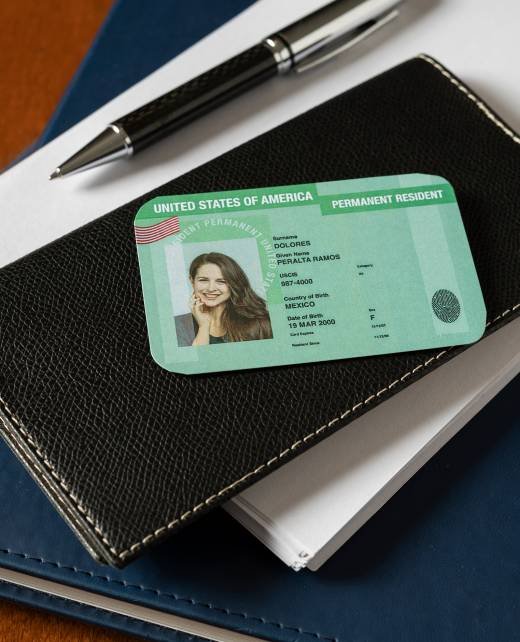In 2024, screening and performing background checks on individuals from Colombia who are migrating to the United States or already residing in U.S. territory is crucial due to the ongoing challenges posed by Colombia’s narco history and its connection to powerful Mexican cartels. These factors contribute to new and sophisticated money laundering strategies that can have significant implications for U.S. national security, economic stability, and public safety. Here are the key reasons:
1. National Security Concerns
Transnational Criminal Networks: Colombia's history of drug trafficking has led to the development of extensive transnational criminal networks that have strong ties to Mexican cartels. These organizations are involved in drug trafficking, money laundering, and other criminal activities that can threaten U.S. national security. Background checks help to identify and prevent individuals with ties to these networks from entering the U.S.
Counterterrorism Efforts: Some of these criminal organizations have links to terrorist groups, using drug trafficking and money laundering to finance their activities. Thorough screenings help to ensure that individuals associated with these groups are not allowed to enter or operate within the U.S., thus bolstering counterterrorism efforts.


2. Prevention of Money Laundering
New Laundering Strategies
The collaboration between Colombian and Mexican cartels has led to the development of new and sophisticated money laundering techniques that can evade traditional detection methods. Screening individuals for ties to these cartels helps to prevent the infiltration of money launderers into the U.S. financial system, thereby protecting the integrity of the economy.
Economic Stability
Money laundering on a large scale can destabilize financial markets, inflate real estate prices, and distort economic data. By conducting thorough background checks, the U.S. can prevent illicit funds from entering its financial system and mitigate these risks.
3. Protection of U.S. Communities
Drug Trafficking and Violence
Gang and Cartel Expansion

4. Immigration System Integrity
Preventing Fraudulent Entry: Colombian cartels are known to use sophisticated methods to facilitate the illegal entry of their operatives into other countries, including the use of false identities and fraudulent documents. Background checks help to verify the identities of Colombian migrants, ensuring that only those who are legally qualified and pose no threat are allowed to enter the U.S.
Ensuring Lawful Compliance: Background checks help to enforce immigration laws by identifying and excluding individuals who do not meet the legal requirements for entry or residency, thereby maintaining the integrity of the immigration system.
5. International Law Enforcement Cooperation
Supporting Global Anti-Drug Efforts: By screening Colombian migrants for criminal ties, the U.S. contributes to international efforts to combat drug trafficking and money laundering. Cooperation between U.S. and Colombian law enforcement agencies is crucial in tracking and apprehending individuals involved in these illegal activities.
Extradition and Legal Proceedings: Thorough background checks can help identify individuals who may be wanted for extradition or other legal proceedings in Colombia or other countries, ensuring that justice is served and that the U.S. does not become a safe haven for criminals.
6. Economic and Social Impact
Protecting Legitimate Businesses: Money laundering and drug trafficking can distort markets and create unfair competition, hurting legitimate businesses. By screening for criminal activity, the U.S. helps to protect its economy from the negative effects of illegal financial flows.
Reducing Social Strain: The presence of cartel members or associates within immigrant communities can lead to increased violence, drug abuse, and other social problems. Background checks help to prevent these issues by ensuring that individuals with criminal ties are not allowed to enter the country..
7. Humanitarian Considerations
Protecting Vulnerable Populations: Many Colombians are fleeing violence and persecution by cartels and criminal organizations. Background checks help to ensure that those in genuine need of asylum receive the protection they deserve, while preventing criminals from exploiting humanitarian pathways.
Preventing Exploitation: Criminal organizations often prey on vulnerable migrants, exploiting them for labor, trafficking, or other illegal activities. Screening helps to identify at-risk individuals and provide them with the necessary protections.
8. Upholding U.S. Legal Standards
Enforcing Sanctions and Regulations: The U.S. has imposed various sanctions on individuals and entities linked to drug trafficking and money laundering. Background checks help to enforce these sanctions by identifying and excluding individuals who are subject to them..
Maintaining Legal Compliance: Ensuring that individuals entering the U.S. comply with legal standards and are not involved in criminal activities upholds the rule of law and promotes justice.
In conclusion, in 2024, performing thorough background checks on individuals from Colombia is essential for safeguarding U.S. national security, maintaining the integrity of the financial system, protecting public safety, and supporting global efforts to combat drug trafficking and money laundering. Given the complex and evolving nature of these threats, vigilant screening is necessary to prevent the infiltration of criminal elements into the United States.
To keep our safety here in America, we have implemented a shield to screen Colombian individuals in our algorithm.
We want to clarify: Not all Colombian Individuals are involved in illegal or criminal activities.
However, it’s imperative to develop a continuity strategy to mitigate risks with these individuals, avoiding potential and unpleasant surprises in doing business like simply leasing properties or granting jobs with no idea of who that person is.
Building a circle of trust it’s too important, but it is also important to develop close business or relationships with your potential Salvadorean clients.
However, creating a circle of trust. Shouldn’t be confused with accepting all kinds of applications from untraceable individuals.
Considering the use of our background check, with legal actions from the courts of Salvadorean will provide a safer environment for your business.
Becoming your 1st step verification for your Salvadorean Risk mitigation strategy. Helping you to visualize legal records from those Individuals. Preparing you to lessen the effects of threats transferred by Salvadorean individuals, to your environment.
What is Risk Reduction?
In other words: A systematic reduction in the extent of exposure to a risk and/or the likelihood of its occurrence. It’s also called risk reduction.
Comparable to risk reduction, risk mitigation takes 5 Strategy steps to reduce the negative effects of threats and possible disasters on business continuity.
1. Accepting the Risk
These are groups of companies that are involved in important planning and likely business. For example, analysts decide whether a company will acquire new assets, launch new lines of business.
2. Avoiding the Risk
In order to avoid a potential risk, you may change your plans completely. Avoiding a risk, is a good strategy for when a risk has a potentially large impact on your plans or projects.
3. Transferring the Risk
Transferring the risk is definitely a risk management strategy and it’s more common in situations where there are more parties involved.
In other words: You transfer the impact and management of the risk to someone else.
4. Mitigating the Risk
Mitigation the risk means, that you limit the impact of a risk, so that if it does occur, the problem it will create will be smaller and easier to fix and the easiest to implement.
5. Exploiting the Risk
Sometimes good things happen after all. Reducing risks Understanding the last 4 strategy steps: Acceptance, Avoidance, Transference and Mitigation are the best solution when facing a negative impact in your plan or organization.
However, a negative impact can turn into a positive impact. And sometimes, we need to analyze all the possibilities in order to take advantage exploiting this “Negative situation” turning it into a positive opportunity.


